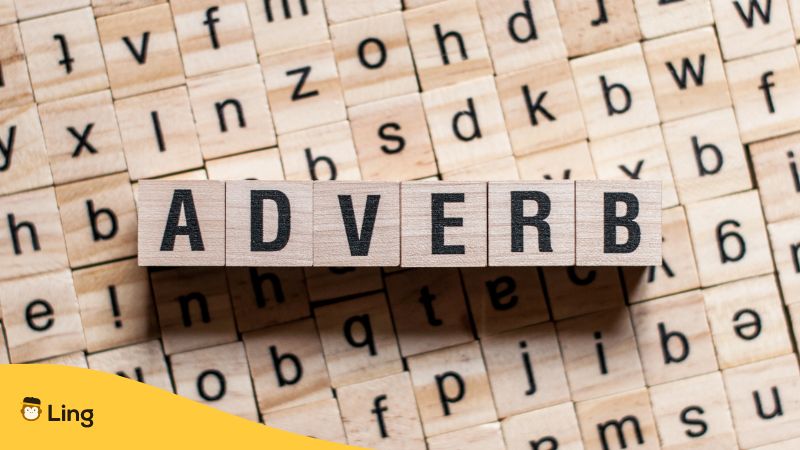In Nepali, adverbs play a crucial role in modifying and describing verbs, adjectives, other adverbs, clauses, and sentence structures. Known as “क्रियाविशेषण” (Kriyāviśēṣaṇa) in Nepali, adverbs typically take the form of words ending in -ले, -सँ, -दै, -लाई, -मा, -पछि, or -माथि. In this post, we’ll delve into Nepali adverbs and discover their usage and the commonly used ones in the language. Let’s dive in!
There’s no denying that adjectives and adverbs often go hand in hand. Basically, adjectives are words that describe nouns, while adverbs modify verbs or other adjectives. This is why they are frequently found together in sentence structures, working in tandem to provide a comprehensive description. By understanding the relationship between adjectives and adverbs, we can enhance our ability to express ourselves effectively in Nepali. Let’s get to know this better in the sections below.
Using Nepali Adverbs
Adverbs in Nepali can be used to provide additional information or to emphasize a point. They can be placed before or after the first noun, verb, or adjective they modify. Here are some examples of how adverbs can be used in Nepali sentences.
- Their usual job is to describe a verb.
- They talked loudly. उनीहरुले चर्को स्वरमा कुरा गरे ।Unīharulē carkō svaramā kurā garē.
- They also help to describe other adverbs.
- He draws very carefully. उनी धेरै सावधानीपूर्वक कोर्छन्। Unī dhērai sāvadhānīpūrvaka kōrchan.
- Finally, they are used to add more meaning to adjectives.
- The movie was extremely boring. फिल्म एकदमै बोरिङ थियो। Philma ēkadamai bōriṅa thiyō.
Mastering Nepali Adverbs
Adverbs in Nepali possess a unique quality of being uninflected, meaning they maintain a consistent form regardless of gender or other grammatical factors. Unlike nouns or pronouns that may vary, adverbs remain unchanged. They exhibit a certain degree of independence and are often positioned at the beginning of adverbial phrases.
To gain a clear understanding of Nepali adverbs, here are six key points to consider:
- Adverbs often function as quantifiers, often called adverbs of quantity.
- In Nepali, you will find adverbials or groups of words that form an adverb.
- Adverbials have suffixes such as – अरी (ari), -साथ (satha), -वित्तिकै (vittikai), -पूर्वक (purvakka).
- The interrogative adverb “when कहिले Kahile” is quite special. When a negative verb is placed behind it, it means never!
- Also, the interrogative adverb “how कसरी Kasari” is not the same as the adjective “how कस्तो Kasto”. This is often placed in front of the qualifier.
- Finally, the word like or such as जस्तै Jastai can be used both as an adjective and an adverb.

Common Nepali Adverbs
Some common adverbs can be divided into categories for you to understand easily!
Adverbs Of Manner (क्रिया विशेषण Kriyaa Visheshana)
Adverbs of manner simply relate an adjective to how something is done or the manner by which it is done.
| English | Nepali | Pronunciation |
| Gently | बिस्तारै | Bistarai |
| Quietly | चुपचाप | Chupachapa |
| Better | अझ राम्रो | Ajha ramro |
| Hurriedly | हतारमा | Hatarama |
| Carefully | सावधानीपूर्वक | Sāvadhānīpūrvaka |
| Beautifully | सुन्दर ढंगले | Sundara dhangale |
| Strangely | अनौठो | Anautho |
| Completely | पूर्ण रूपमा | Purna rupama |
| Strongly | दृढतापूर्वक | Dr̥ḍhatāpūrvaka |
| Loudly | चर्को स्वरमा | Carkō svaramā |
Adverbs Of Question Or Interrogation (संज्ञाकारक Sangyaakaaraka)
These types of adverbs often are found at the beginning of English sentences. In the Nepali language, it is usually in front of the verb or verbs.
| English | Nepali | Pronunciation |
| What | के | Kē |
| When | कहिले | Kahile |
| Why | किन | Kine |
| How many | कति वटा | Kati vaṭā |
| Whose | कसको | Kasako |
| Whom | कसलाई | Kasalai |
| Which | कुन | Kuna |
Adverbs Of Comparison Or Comparative Adverbs (उपमा बीज Upamaa Beeja)
Comparative adverbs are often in three forms. These are the positives, comparatives, and superlatives.
| English | Nepali | Pronunciation |
| More than/Too much | धेरै | Dherai |
| Less than | भन्दा कम | Bhanda kama |
| Equal to | बराबर | Bara bara |
| Least | कम्तिमा | Kamtima |
| Worse | नराम्रो | Naramro |
| Best | उत्तम | Uttama |
| Worst | सबैभन्दा खराब | Sabaibhandā kharāba |
| Little | सानो | Sano |
| Always | सधैं | Sadhaim |
| Rarely | विरलै | Viralai |
| Usually | सामान्यतया | Sāmān’yatayā |
| Often | अक्सर | Aksara |
| Never | कहिल्यै | Kahilyai |

Other Adverbs In Nepali
| English | Nepali | Pronunciation |
| Now | अब | Aba |
| Later | पछि | Pachi |
| Often | अक्सर | Aksara |
| Inside | भित्र | Bhitara |
| Here | यहाँ | Yaham |
| There | त्यहाँ | Tyaham |
| Everywhere | जताततै | Jatatatai |
| Yes | हो | Ho |
| No | छैन | Chaina |
| It is right | यो ठिक छ | Yo thika cha |
| It is wrong | यो गलत हो | Yo galata ho |
Learning Nepali adverbs is an absolute must if you want to take your language skills to the next level! Seriously, diving into the world of Nepali adverbs will supercharge your ability to express yourself with precision and flair.
Picture this: by mastering Nepali adverbs, you gain the power to tweak verbs, adjectives, and other adverbs in all the right ways. You’ll be able to describe when and where things happen, how they happen, and how often they occur. It’s like adding a magical touch to your language skills!
But here’s the real deal: by getting cozy with Nepali adverbs, you’ll not only rock your conversations, but you’ll also unravel the hidden depths of Nepali texts and cultural nuances. It’s like discovering a secret code that unlocks a world of language and cultural insights.
So, my friend, don’t miss out on this fantastic opportunity. Embrace Nepali adverbs and get ready to level up your language game like never before!
If you want to learn more about Nepali grammar, like pronouns, sentence structure, and tons of info on the culture and Nepali way of life, then you’ve got to try out the Ling app!
Learn Nepali With Ling
Introducing Ling, your ultimate language companion! Whether you’re a beginner or an advanced learner, Ling is here to revolutionize your language learning experience. With its innovative features and comprehensive content, Ling offers a seamless platform for mastering Nepali and 60+ other languages.
Immerse yourself in interactive lessons, where you’ll develop vocabulary, grammar, and pronunciation skills through engaging exercises. Explore a vast library of audio files, perfect for honing your listening and speaking abilities. Need instant conversation practice? Ling’s built-in chatbot has got you covered. Ready to give it a try? Download the app from Play Store or the Apple Store today!






























































